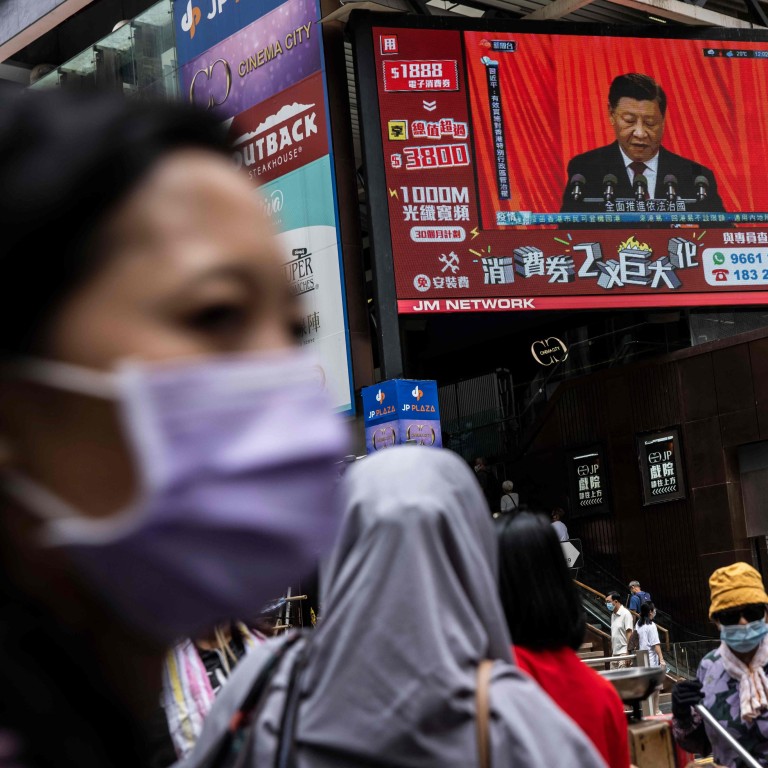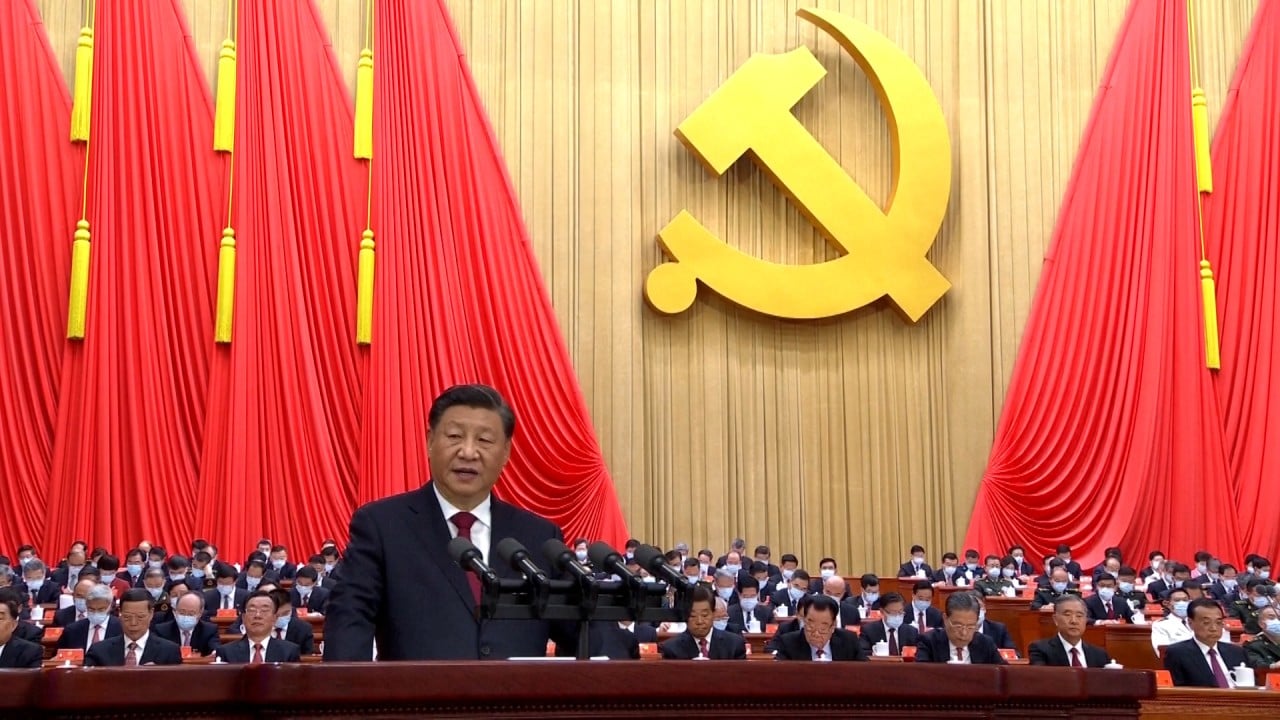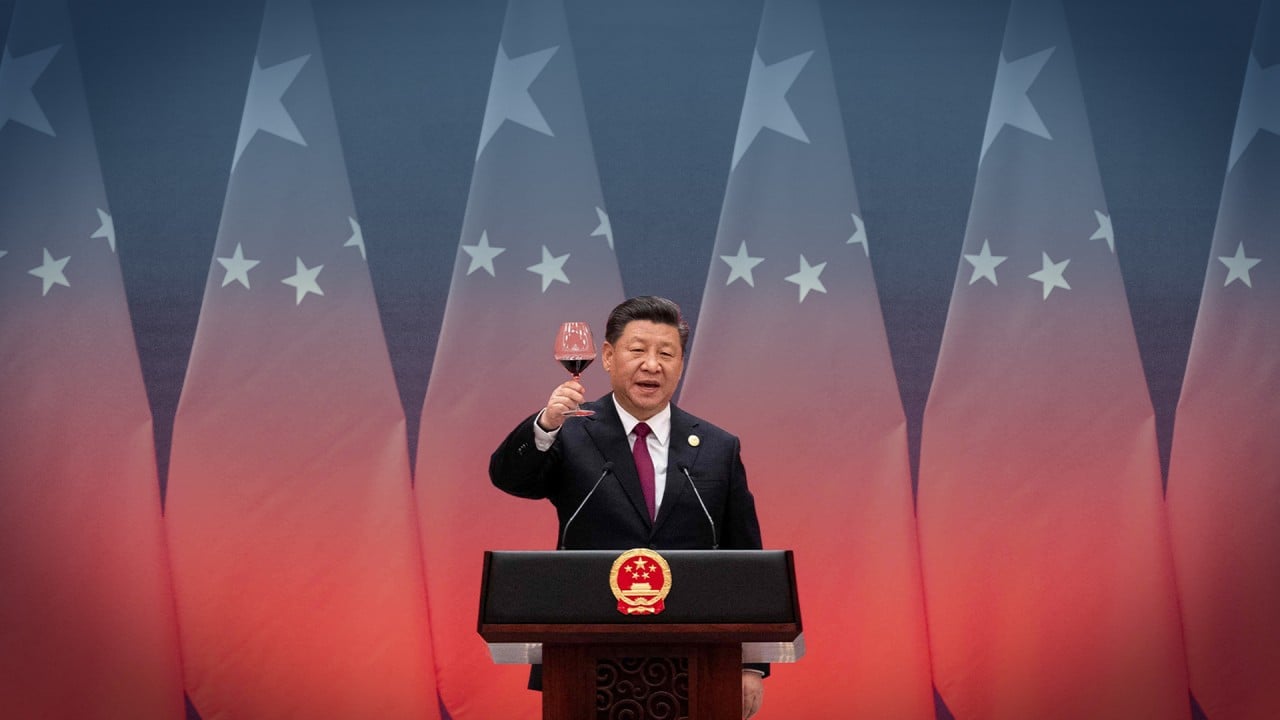
China’s Xi Jinping sends ‘warning signal’ to the wealthy as he opens new front in ‘common prosperity’ push
- President Xi Jinping’s report to the 20th party congress signalled more robust regulation to narrow the wealth gap
- Analysts expect a wider array of taxes to support poor families and bolster the social safety net, while wealthy Chinese could face a rocky road ahead
Just days after President Xi Jinping announced tighter oversight of the way wealth is accumulated in China, speculation is growing about who might be targeted and how, with private business confidence still shaky following Beijing’s crackdown on the tech sector.
“We will keep income distribution and the means of accumulating wealth well-regulated,” Xi said, according to the English version of his report. “We will protect lawful income, adjust excessive income and prohibit illicit income.”
“Common prosperity” is not a new policy, but Xi’s comments were the first time China’s top leadership has spoken about managing the means of wealth accumulation.
Usually such concise language delivered at a party congress is a sign of more concrete policies to come.
This should be a warning signal for the wealthy
Some foreign China experts also see a rocky road ahead for the country’s private entrepreneurs.
“This should be a warning signal for the wealthy,” warned Alicia Garcia Herrero, chief Asia-Pacific economist at Natixis.
Beijing’s objective is not to build a European-style welfare state, but rather to increase the role of the government or party to “regulate” wealth accumulation, she said.
Joe Mazur, a senior analyst with Beijing-based consulting firm Trivium China, said it is still unclear exactly what the phrase means, but it will certainly have caught the attention of China’s wealthy.
What Xi Jinping’s shortened congress work report did not mention
“Any approach to wealth redistribution will proceed slowly and carefully given the substantial economic headwinds that China is currently facing,” he said.
“The tech and real estate crackdown have already spooked growth creators, and Beijing will not look to compound those problems by introducing overly strict measures on the wealthy in the short term.”
China’s former paramount leader Deng Xiaoping popularised the slogan “common prosperity”, but its use has surged under Xi, the country’s most powerful leader in the past three decades.
Xi, who is expected at the congress to secure a third term as the party’s leader, has listed it as one of the key tasks in building a “great modern socialist nation” by 2049 – the centenary of the People’s Republic of China.
In recent years, Beijing has launched a campaign to combat the “blind expansion” of capital, with high-profile investigations into private-run internet companies, and tighter regulation of the real estate and finance sectors, as well as private tutoring. Calls have also resurfaced about eliminating private ownership, which has sown concern among the business community.
Many still worry about a Robin Hood-style tax taking from the rich to compensate the poor, though this has been denied by the government.
In previous speeches, Xi has said unreasonably high revenue earned by privately-owned monopolies and state-owned enterprises will be targeted.
The government is also pursuing illegal income earned through corruption, insider trading, stock manipulation, financial fraud and tax evasion.
What is China’s common-prosperity strategy?
Southwest Securities analysts Ye Fan and Wang Runmeng said Beijing might target property and use taxes to adjust excessive incomes.
“Housing is the major form of Chinese household wealth,” they wrote in a research note on Monday, anticipating more government help for affordable housing and the launch of property tax trials.
Meanwhile, “a capital-gains tax and inheritance tax may be launched or their levy scope is expanded,” they added.
Housing accounts for 59.1 per cent of Chinese households’ assets, the People’s Bank of China said in early 2020, some 28.5 percentage points higher than in the United States.
Property tax trials have long been on the agenda for the world’s second largest economy, as local governments require new sources of income as revenue from land sales dries up.
However, trials have been shelved amid the country’s property sector crisis.
Feng Wenmeng, a researcher with the Development Researcher Centre of the State Council, told China News Service that money earned through the disposal of company shares and monopolies, personal spending by business controllers and wealth inheritance could face greater scrutiny.
Beijing has acknowledged reaching “common prosperity” will be a long process and it has not yet announced annual or five-year targets to measure progress.
One of China’s richest provinces, Zhejiang, outlined a strategy to narrow its wealth gap by 2025, which is being touted as an example for the rest of the country.
Why China’s ‘rattled’ private firms struggle to see light at the end of tunnel
In August last year, Xi said in a speech that revenue and consumption gaps between households should be gradually narrowed by 2025. He also said there would be improvements to personal income taxes and standardisation of capital gains, property tax pilots and an expansion of consumption taxes.
According to the World Inequality Lab, the top 10 per cent of the Chinese population earns, on average, 14 times more than the bottom 50 per cent.
The gap is bigger than in most developed economies, including Japan where the difference is 13 times, and Australia and Germany where it is 10 times.
But it is smaller than in the US, where the top 10 per cent earn 17 times more than the bottom 50 per cent.
The top 10 per cent of income earners account for 70 per cent of China’s wealth, slightly lower than 71 per cent in the US.




